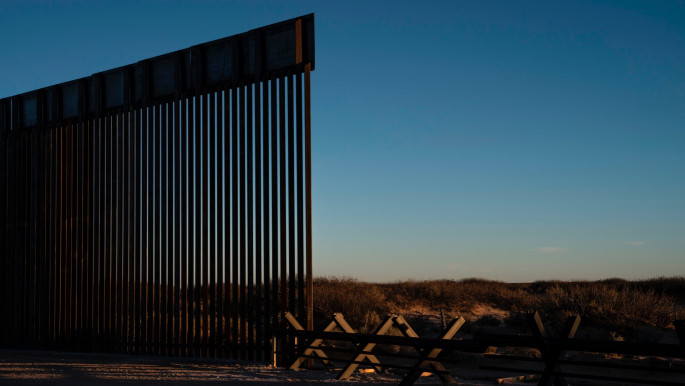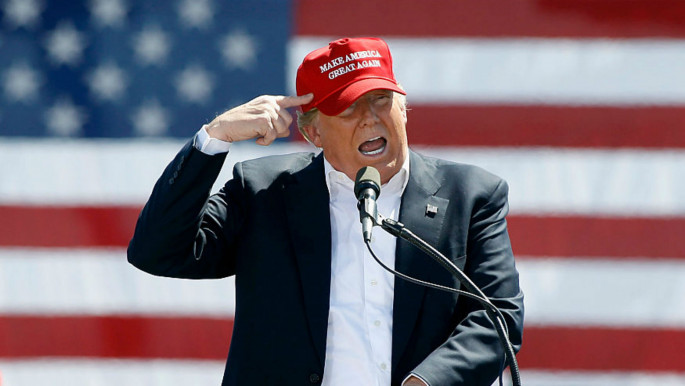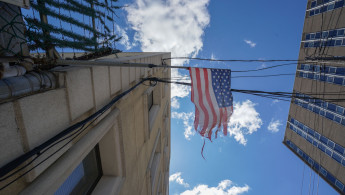How immigrant doctors in the US are fighting Covid-19 on the frontlines
From New York's most crowded hospitals to those in rural areas, no medical professional is unaffected by this ongoing pandemic.
For immigrants, this also means a sense of dedication to contribute to their adopted country while remembering their colleagues they left behind, and also contending with mixed messages about how welcome they are in the US.
In the summer of 1980, during the holy month of Ramadan, Mahmoud Nouh arrived in Los Angeles from Alexandria, Egypt to practice the growing field of emergency medicine at the University of California at Los Angeles.
He experienced his first disaster relief work following the 1994 Northridge earthquake. With the Covid-19 health crisis, the hospital has once again initiated its disaster plan – with a tent outside, halting elective surgeries and bringing in extra staff.
"I've seen everything. But I've never seen anything like this," Nouh told The New Arab. "I heard about doctors and nurses dying in China and Italy. All the staff are under stress. It's like being a soldier in a war. You can't desert your team."
 |
Nearly one in three doctors in the US was born abroad, more than twice the country's overall foreign-born population |  |
Nouh is one of hundreds of thousands of foreign-born doctors in the US. According to a 2018 report by the Journal of the American Medical Association, nearly one in three doctors in the US was born abroad, more than twice the country's overall foreign-born population.
"Us baby boomers will be retiring soon, and the country will need more doctors to come," he said.
Indeed, at the beginning of the pandemic, the US State Department issued a public notice asking foreign doctors to come to help with the relief effort. However, earlier this month, an executive order was issued to ban immigration.
It's unclear how either move would have had much effect given the widespread closures of airports around the world since March.
In any case, there does appear to be mixed messages at a time when doctors, particularly immigrants, many of whom have fled danger in their country of origin, are under tremendous stress.
 |
|
| Read more: 'You're not welcome': Trump's new immigration ban sows anxiety and confusion in the US |
"Being an immigrant does bring some complexity to it all," said Taha Bail, who left Syria in 2008 to do his residency at Washington University in St. Louis, and now works as a neurologist at Tufts Medical Center in the Boston area, where his work now includes treating coronavirus patients.
"Over the past several years, the Syrian healthcare system has been under attack. We've watched it collapse. It's very thought-provoking. Personally, it has given me an appreciation of what Syrian doctors are doing, under the stress of being bombed," he said.
"For many years, I've watched from afar with survivor's guilt. Our fate distinguishes us from our classmates who practice medicine there. Now, we're getting our moment of crisis medicine," he added.
"So many of my classmates are in different time zones. All of us are especially stressed out. We always have dual anxieties about what's happening here and in Syria."
One concern he has is the shortage of physicians in rural America, particularly in areas that might be prematurely reopening for business.
 |
Change starts with one person. I believe in the bigger mission. Making a difference one person at a time is fine |  |
"There is a shortage of physicians, ironically especially in rural areas, where foreign doctors are more needed. Maybe the communities prone to propaganda are more in need of such immigrants," Bali said.
In fact, one immigrant who has spent almost his entire medical career serving rural areas feels a sense of purpose working in underserved rural areas – not just for the work, but also for the people who could benefit from exposure to diversity.
Soubhi Azzouz, who has practiced medicine in Omaha, Birmingham, Texas, and now in Grand Junction, Colorado, recalled one incident with humor.
"One patient said to me, 'Before I met you, I thought all Syrians were bad. I still think that, except now I think you're good.' That was the nicest racist thing I've heard."
"Change starts with one person," he added. "I believe in the bigger mission. Making a difference one person at a time is fine."
 |
|
| Read more: How Trump is using coronavirus to push his white nationalist election agenda |
For the most part, his patients don't hesitate to express gratitude, saying "thank you," sending him "thank you" cards and up until recently sometimes giving him a hug. Many of his patients have said to him: "Thank you for coming to this country."
Azzouz, who has mostly practiced in medicine in America's rural areas, said he was inspired to become a cardiologist after a Syrian doctor who'd practiced in Kansas saved his father's life following a heart attack.
"I owe the world to the physician who saved my dad's life," he said.
With his work in Grand Junction, a remote area near the Utah border, he is doing procedures for which patients previously had to go to Denver (nearly 250 miles away).
"I like that I'm doing something for society. People are in really desperate need for what I do here," he said.
 |
Somewhere in America, a doctor from the other side of the world is saving a patient's life |  |
Although he's not currently treating Covid-19 patients, the restrictions imposed due to the disease has meant that the families of hospitalised terminal patients are not able to say goodbye to their loved ones, which is the case for hospitals and nursing homes across the world.
"It breaks my heart that families are not allowed to visit right now. They tell me over the phone to tell their family that they love them," he said.
It is a difficult but important price to pay to contain the pandemic.
"It's a huge ethical question. What's more important: life or the economy? As a physician, I can't think about it that way. I just have to do everything I can to bring someone back and save them. For us, a life is a life," he told TNA.
With Ramadan having just begun, Nouh, the Egyptian doctor from UCLA, is reminded of a saying from the Quran: "He who saves a life saves mankind."
Brooke Anderson is a freelance journalist covering international politics, business and culture
Follow her on Twitter: @Brookethenews


